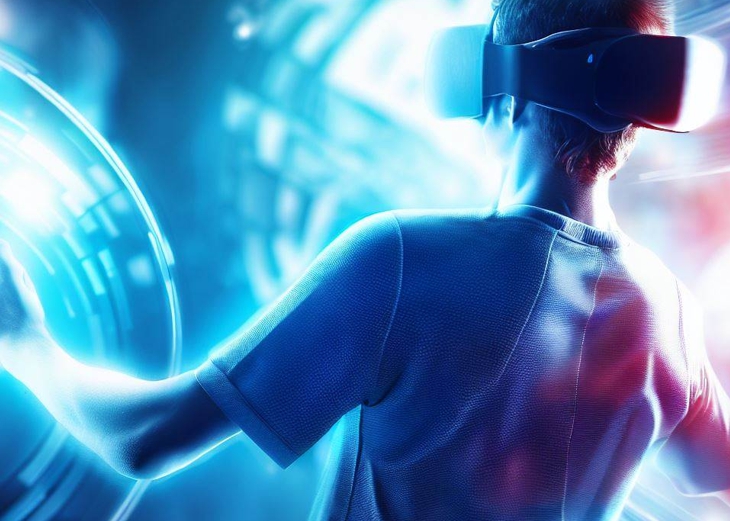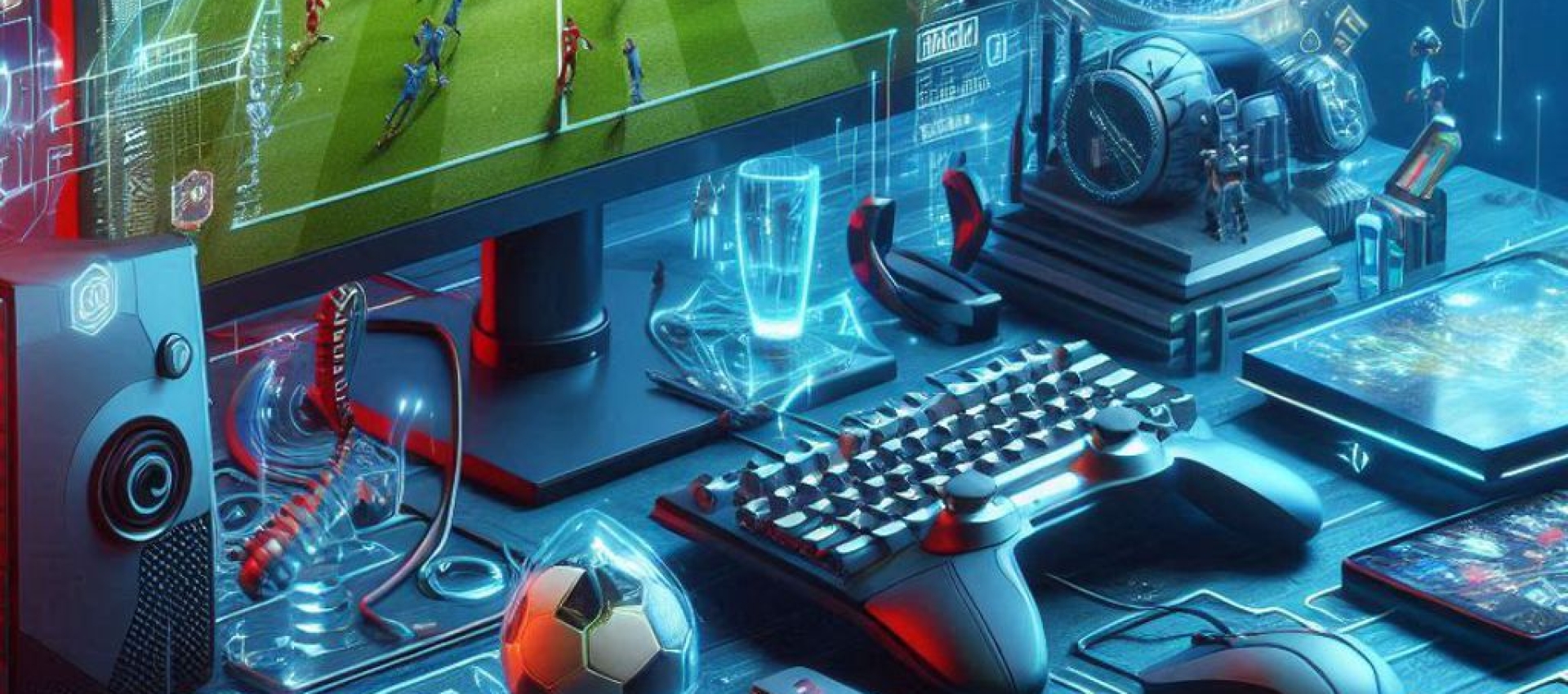This is a private view from WESCO about the theme of this article. Much has been said about electronic sports and the virtualization of regular sports.
We will discuss this in another specific article on this subject, however, in this article we try to explain in a clear way, what it means for WESCO, the electronic sport, electronic games, and the term we created at WESCO to address the “simulations”, which for us is “Virtualization of Regular Sports” or simply “VRS”, with the appropriate rules for fitting into this category.

e must understand what electronic games, electronic sports and virtualized sports are.
Electronic games and electronic sports come from the same “core”, that is, they are software created for entertainment, using a hardware platform, in which their reading and practice is performed, such as computers (PCs, Laptops) ), specific consoles for electronic games (video games) such as Playstation (Sony manufacturer), and X-BOX (Microsoft manufacturer), among other consoles from other manufacturers, such as Master System (Sega), Nintendo (from Nintendo itself) .
The competition using electronic games took place many years ago, in the 1970s, in different closed and private places, where basically one competitor faced the score of another, or more specifically the final score in a given electronic game title, based only on his skills would make a winner, individually, and not directly against each other. With the advent of local networks, some game titles were created specifically for this different new purpose.
The electronic game and its more elaborate competitions, only followed the line of real competitions between practitioners from different places, when Internet connections were able to withstand the demand for sufficiently satisfactory readings of data compression so that some titles of electronic games could, through servers in different locations, connect with each other, or even when computers could connect through these servers in the same communications protocol and local software to compete with each other.
This was an excellent way to have the promotion of those same game titles, in their sales and use, until then without the micro transactions that today are the "core" business of many electronic game titles (nowadays most of them distributed for free).
At the same time consoles, and their main companies, such as Microsoft and Sony, created their own private networks, connected to the Internet, so that electronic game titles, and then future micro transactions, were operationalized, then PSN and X-BOX LIVE emerged, and not coincidentally, these consoles dominated this market almost exclusively, while other trading platforms and player ranking system, such as Steam, focused more on computers.
Companies specializing in creating and performing competitions arose, then promoting the creation of groups of people who were fans of the same titles, and consequently had the first informal "teams" to compete in video games.
The developers of these own electronic games, soon understood that the promotion of competitions among their fans, was the ideal and most logical way to keep their titles always in vogue, and thus promote even more possibilities for different types of commerce, and with that they would still maintain a bigger fan base for future releases of new electronic game titles, whether they could be included as an electronic sport or a private game title like some in the “Open World” mode and others . Some of these actual ways to market their products, have been inspired by practices carried out by fans, creating MODs for these specific titles of video games , these MODs that added new weapons, new clothes, items etc.
The developers saw that this was the biggest transaction market for any game titles, and that way they could do infinitely more, promote their titles and encourage more people to join those same electronic game titles or others to be launched.
In turn, the developers started by themselves, creating their championships, and many of them made esports titles available for free online. They supported in-game modes, with a direct line to follow within the game, the so-called “campaign mode”, and the “competitive” mode where purchases of items and looting boxes were not accepted.

From that moment, where the interaction was total between players from different parts of the world, regardless of their countries, and the competitions were well organized, we had the advent of a change in the realization of the competitions and the use of the name “electronic sport” started, instead of just electronic games or “e-games”.
After the emergence of a local, national, regional, continental, and international entities that wished to manage electronic sport (but never interfering in the private business of the developers/publisher who would continue to have their own competitions etc.), to provide regulation, participation rules and even legislation, we had the institutionalization of electronic sport. We then proceeded to divide it, as understood by WESCO, in private esports and institutional esports, in a similar model to the regular sports, which presents us with the basketball, volleyball, karate, football the exactly same institutional model, all those model belonging to the international pyramidal sports system.
With this, counting on administration organizations, between regulation and legislation, the movement of recognition of electronic sport, as regular sport, was initiated in several countries and continents.
The game development market has long realized that some regular sports, such as fighting, racing, golf, football, basketball, among others, could be replicated by software, not so much as a simulator, but as a "video game" style of compete and play these regular sports, using only electronic ways of software and hardware. Video game controls, computer keyboards and more, were the ways by which competitions were practiced by players, and still are in most electronic sports titles, that brought regular sports to the digital world.
If we analyze in depth, all we have of electronic games is, in a certain way, the transposition of the real to the electronic (or digital) environment, such as war strategies (AoE, Starcraft, Warcraft, DOTA 2), combats and battles (COD , CS: GO, BATTLEFIELD and etc.), body fights (TEKKEN, INJUSTICE, STREET FIGHTER and etc.), and some sports (FIFA, NBA2K, F1 and etc.). Each one in a stylized way and free from limitations of creation and interaction, where there are the emergence of fictitious beings, powers that present themselves in the form of explosions, rays and other things, that only in the digital environment could we find and apply.
WESCO already calls “simulators of regular sports”, as virtualized regular sports - VRS, in which for our understanding, it is mandatory to have identical physical action, exercised by the competitor who practices virtualized sport and derived from his regular sport, and obligatorily the way in which this virtualized sport is transposed, it must be virtual, like Virtual Cycling - where there is a real physical effort using a real bicycle, connected to a proper hardware, which identifies various information from the electronic device (roller), where the bicycle wheel fits, but which it is also mandatorily transposed to the virtual environment in its path (course), where technical and physical details of that same path and the calculations of physical effort, gives to the competitor his (her) placement in the competition and etc. We also have the same VRS for Golf, Formula 1 , among other titles of electronic games, since all these titles and others, have for you the possibility of using identical physical part which is used in its regular version, together with electronics.
In addition, these same examples mentioned above can be 100% virtual, that is, they can be practiced in versions of electronic game titles using only console and computer controls and their keyboards etc.
The opposite is beginning to appear, we already have technology developed so that war games like Battlefield, CS: GO or even COD can be practiced using, virtual reality clothing and “omni direction” movement pad, where running, jumping and other movements are identified.
It is at that moment when something interesting happens, we have the path of the virtual coming to the regular, but still in an almost 100% virtual (digital) environment. This is the new Era of what esports will become. Or even further, where we will literally attach to our temple a device for neural immersive technology, we may be carried for a total virtual world, in which will compete and live a second life (like the current "Second Life" , but much more advanced as in the movie “Ready Player One”, or even more advanced, as in an episode of the “Netflix: Black Mirror” series, amazing right?).
For us at WESCO, we currently consider these three categories:
- Electronic Sports - ranked and regulated practice, of solo or group competitions, federated or not (institutional or private), different titles (franchises) with human performance purely through specific hardware and software,
- Virtualized Regular Sports - ranked and regulated practice, of solo or group competitions, federated or not (institutional or private), different titles with hybrid human performance between hardware and software and machinery that provides physical activity identical to the regular practice of these regular sports, with transposition to digital, as the final ways in which it is practiced,
- Electronic Games - informal practice of any competitive titles in interaction between individuals, for promotion, unranked, unregulated, relying only on the rules of the title of the electronic game. Done freely at the time, place and manner desired by the purchaser of this electronic game.
At WESCO we identify those many different sports/esports practical categories by:
- PLATFORMS: Computers (PCs and Laptops), game consoles, cellphones and/or smartphones, VR and AR.
- MODES: FPS, RTS, MOBA etc.
- FRANCHISES: CS: GO, COD, DOTA 2 etc.
- COMPETITIVE SYSTEM: Round Robin, Single Elimination, Knockout etc.
- SPORTS SYSTEMS: Championships, Tournaments, Cups, Trophy, etc.
- COMPETITIVE COMPETENCES: Institutional Ranked Competitions, Private Competitions, Endorsed Private Competitions and Foment Competitions.
In a future article we will talk about WESCO's position in relation to the Olympic Movement, the Olympic Games, the International Olympic Committee, Olympism, Regular Sports and Electronic Sport.






